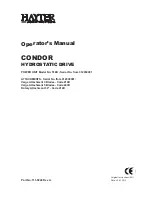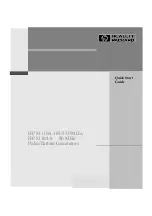
7
GB
Choke lever
Petrol cock
Fuel gauge
Voltmeter
ON/OFF
Alternating current (AC)
Direct current (DC)
Overload cut-out
2. General Safety Instructions
- Important: No changes may be made to the
generator.
- Only original parts may be used for
maintenance and accessories.
- No changes may be made to the settings
of the motor or generator. The speed
preset by the manufacturer is not allowed
to be changed. The generator or connected
equipment may be damaged.
- Repairs and adjustment work may only be
carried out by authorized trained personnel.
- Important: Petrol and petrol fumes are
highly combustible or explosive.
- Risk of explosion: Never operate the
generator in rooms with combustible
materials.
- Do not refuel or empty the tank near open
lights, fire or sparks. Do not smoke!
Important: Exhaust gases can escape despite
the exhaust hose. Due to the fire hazard,
never direct the exhaust hose towards
inflammable materials.
- Always switch off the engine when
transporting and refueling the generator.
- Make sure that when you refuel the
generator, No fuel is spill on the engine or
exhaust pipe.
- Place the generator in a secure, level
position. Do not turn, tip or change the
generator's position while it is working.
- Secure the generator against shifting and
toppling during transport.
- Guard against electric danger.
- Make sure the generator is properly
grounded before use.
- Never connect the generator to the power
grid.
- Never operate the generator in rain or
snow.
- Never touch the generator with wet hands.
- Never use faulty or damaged electrical
equipment (this also applies to extension
cables and plug connections)
- When working outdoors, use only extension
cables that are approved for outdoor use and
which are marked accordingly (H07RN).
- The overall length of the extension cables
used may not exceed 50 m for 1.5 mm
2
and
100 m for 2.5 mm.
- Important: Risk of burns. Do not touch the
exhaust system or drive unit.
- The generator is driven by a combustion
engine, which produces heat in the area
of the exhaust (on the opposite side of the
sockets) and the exhaust outlet. You should
therefore keep clear of these surfaces
because of risk of skin burns.
- Do not touch any mechanically driven or hot
parts. Do not remove the safety guards.
- Children are to be kept away from the
generator.








































